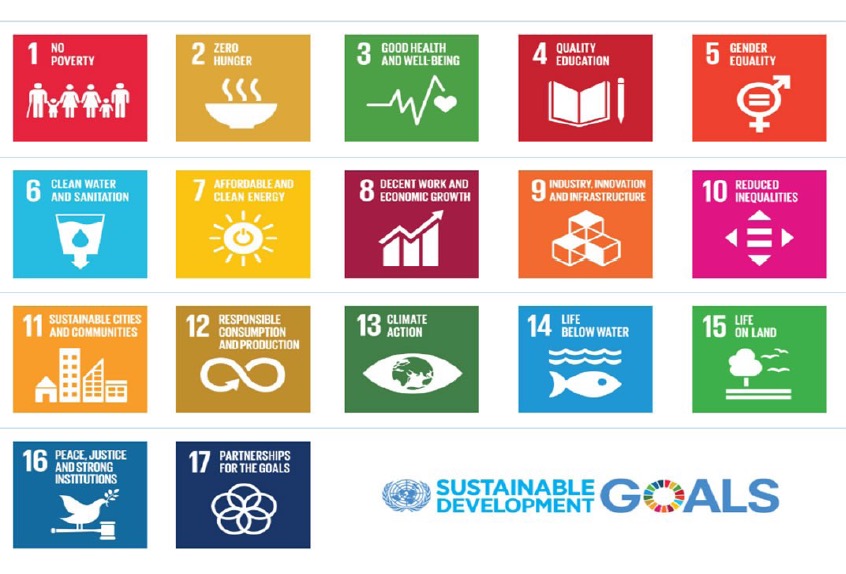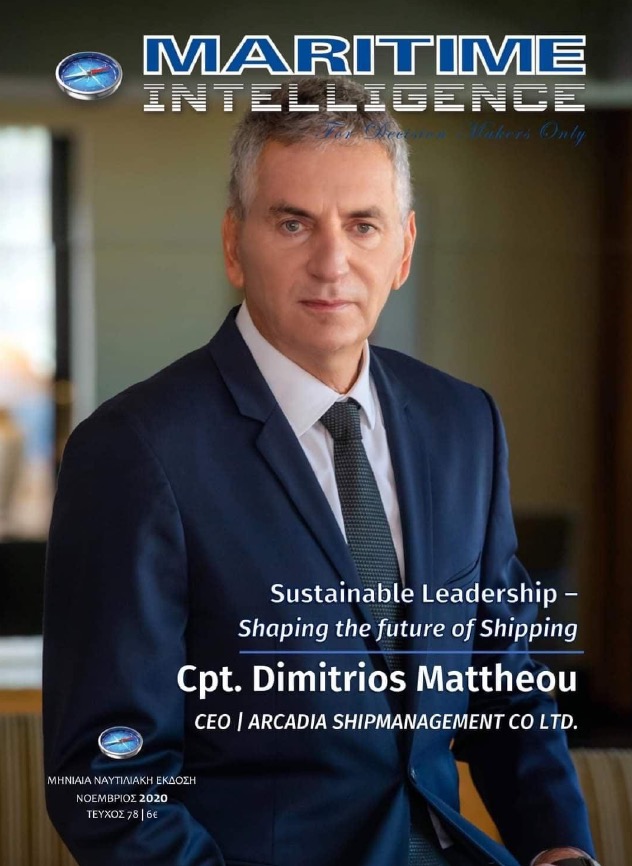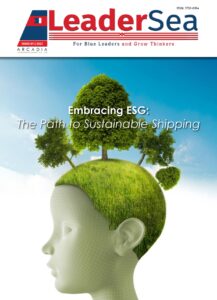Νοέμβρης 2020
Acknowledgement
The world we live has become an increasingly uncertain place. In the wake of a Covid-19 pandemic, a global economic downturn and a social disorder, the political systems and institutions capable of addressing the complex global issues we all face, seem to be fragile.
Against this background of uncertainty, organizations are increasingly expected to take responsibility for the ways in which their activities impact both their micro and macro environment, namely their employees, clients, associates, suppliers, investors, the wider society and the natural environment—as well as seeking to maximize profits.
A global call for actions
The private sector is expected to play a crucial role in the realization of the United Nations’ Sustainable Development Goals. In 2015, 193 countries adopted the 2030 Agenda for Sustainable Development and its 17 Sustainable Development Goals (SDGs). This Agenda calls for action by all countries to eradicate poverty and achieve sustainable development by 2030 world-wide – and the SDGs are seen as an opportunity to transform the world for the better.

As part of the United Nations family, IMO is actively working towards the 2030 Agenda for Sustainable Development and the associated SDGs. Indeed, most of the elements of the 2030 Agenda will only be realized with a sustainable transport sector supporting world trade and facilitating global economy. The Sustainable Development Goals provide a blueprint for the transition to a healthier planet and a more just world — for present and future generations. With concrete targets, the Goals aim to end poverty and hunger, expand access to health, education, justice and jobs and promote inclusive and sustained economic growth, while protecting our planet from environmental degradation. The decade 2020-2030 needs to be a decade of action and delivery on these goals. In order to achieve this, the Secretary General of the United Nations, Antonio Guterres, has asked for all world leaders to focus on the Sustainable Development Goals. The International Maritime Organization, in line with the IMO Secretariat’s SDG Strategy and with the 2020 World Maritime Theme of “Sustainable shipping for a sustainable planet” is ready to further raise awareness of the United Nations’ Sustainable Development Goals and to support Member States in their efforts to implement the 2030 Agenda and make 2020-2030 a decade of action.
This interactive campaign provides an excellent opportunity to showcase the work that the Shipping Industry is undertaking to achieve the targets. It will provide opportunities for leaders in shipping, to both reflect on the work done and the urgent steps they further plan towards a sustainable future.
Taking an alternative path in Shipping
Introducing Sustainable Leadership
Leadership is about envisioning and shaping the future. The key step is to begin with the end in mind. As they say, the future is a better place to start. Think of a construction of a home, for example. You create it in every detail before you ever hammer the first nail into place. Leadership, in our business world, helps us define our goals, visualize, have a very clear sense of what kind of Shipping we want and what are the things we want to accomplish.
Shipping Management, on the other hand, is a bottom-line focus, because management is about doing things right; leadership is doing the right things. American author, Stephen R. Covey describes it perfectly: “The Management is
efficiency in climbing the ladder of success; leadership determines whether the ladder is leaning against the right wall.” Therefore, leaders in shipping have an important part to play in making the right strategic choices (choose the right wall) in order to create this sustainable future.
But taking these into account, the urgent need arises for a new type of leadership – one that makes the long-term sustainability of our industry a top priority. It is called ‘Sustainable Leadership’ and it is already applied in various sectors by leaders of businesses (often CEOs) manage companies with environment, society, and long-term sustainable development goals. To be more specific, sustainable leaders set strategies and ensure the delivery of results that meet the triple bottom line of social, environmental and financial performance oftentimes referred to as the 3Ps: People – Planet – Profit.
Sustainable leadership demands a fundamentally different approach towards people and systems. It requires a change in mindset on the part of boards of directors to start operating according to this logic. Current human resources practices in large corporations typically adopt a more short-term outlook, which by no means support sustainability. The winners of the future will be those companies that are proactively embracing sustainability as a business opportunity instead of seeing it as a matter of compliance or a way to defend themselves against critical stakeholders.
Sustainable leaders look beyond immediate, short-term gains to see the role their company plays in a larger context. Complex, transnational issues— the global impact of the pandemic COVID-19, the pressure on natural and food resources, our ecological footprint and climate change, regional instability, various security/safety issues, access to healthcare, training requirements, social disruption and technological change—cannot be solved by external forces nor addressed by international bodies, governments and political systems only. Nowadays, there is growing social pressure on companies-including the shipping companies- to consider as first priority “People, Planet and Profit” and to respond to the concerns of multiple stakeholders.
In particular, every company, no matter the sector, is now accountable and is obliged to assist in dealing with these three global issues, initially by improving its internal environment; the employees and the applied corporate systems are called to become part of this transformation journey to sustainable development. The desired result is a state of society where living conditions and resources are used to continue to meet human needs without undermining the integrity and stability of the natural system.

A Sustainable Leadership model
An ideal model of sustainable leadership was first introduced by Russell Reynolds Associates that successfully brings together my thinking in this article, as well as highlighting the need for a fundamental change in approach toward sustainability in the Maritime world in order to facilitate adoption. The model is based on 3 competency domains:
1. Developing a sustainability mindset – Moving from ‘me’ to ‘we’
The mindset is the foundation of sustainable leadership. Organizations striving for sustainability should encourage a mindset of interdependence within the organization in its leadership development programs. Possible initiatives could include leadership assessments, coaching, international project work and leadership journeys, which take leaders out of the workplace and put them into the natural world.
2. Systems thinking
| Zooming in and out
It reflects competency domain of ‘Situational Awareness’. System thinking is the intellectual flexibility to see the bigger picture, as well as to appreciate the details – and to shift perspective between competing interests in order to develop a strategy that inspires people involved in an organization, employees, suppliers, associates etc. Most importantly, is the ability to always be alert and willing to zoom in as required to get to the root cause of an issue and zoom out equally fast to regain the big-picture perspective.
3. Relationship building Connecting and collaborating with people
It refers to the ability to understand people across culture and perform as an advocate of diversity for the establishment of productive, long-term relationships with key stakeholders through effective communication and empathy, leading to concrete and positive results.
Sustainable Leadership – the game changer at Shipping
Shipping is a vital cell of the Global Economy, engaged on a journey of transformation towards this sustainable future. Sustainable Leadership as an adopted mindset provides the opportunity to leaders and managers to work together, to grow and develop both their organizations and the people involved, in a healthy and vigorous way in order to synchronise in a world that is constantly changing. After all, as the saying goes, “It is not the strongest or the most intelligent of the species that survives. It is the one that is most adaptable to change.”
GAME ON, FOR SUSTAINABLE SHIPPING!
AND SUSTAINABLE LEADERS WON’T
JUST PLAY THE GAME, THEY WILL
CHANGE THE GAME!
You can read the article by pressing the following link: Sustainable Leadership – Shaping the future of Shipping – Ναυτιλία – Οικονομία – Υγεία – Επικαιρότητα (libertypress.gr)




